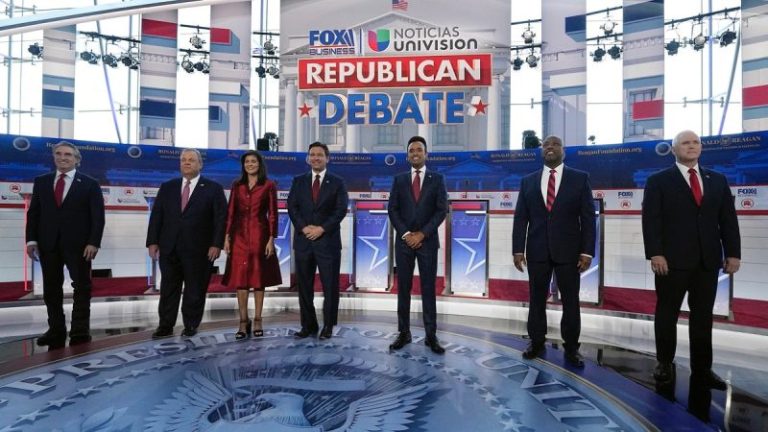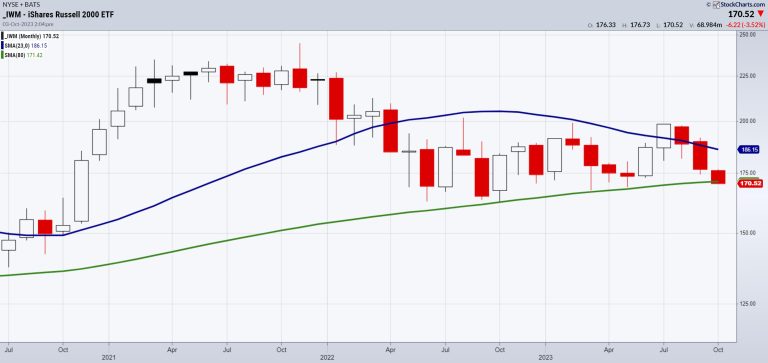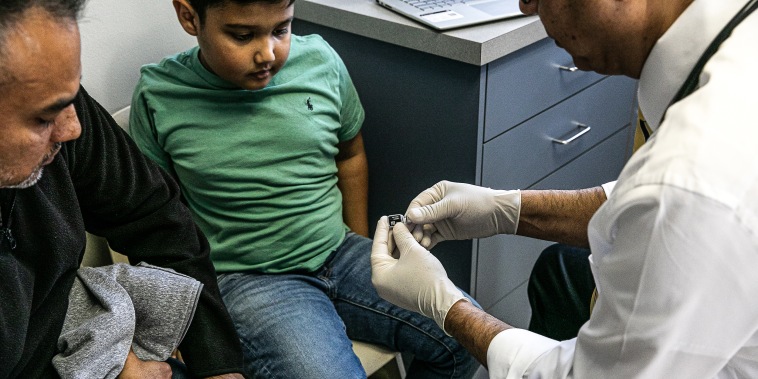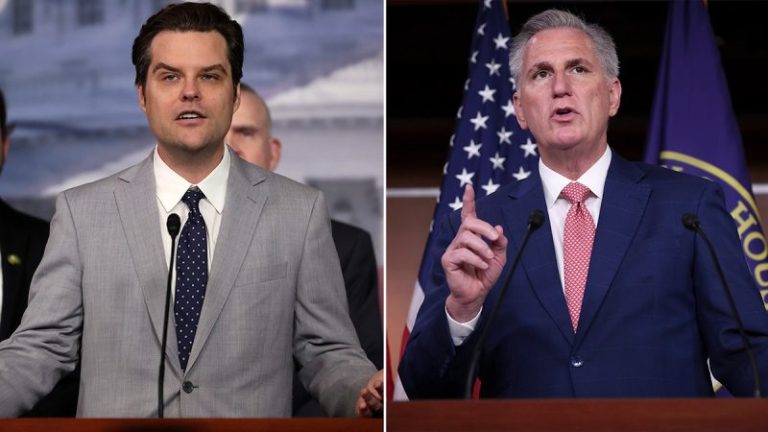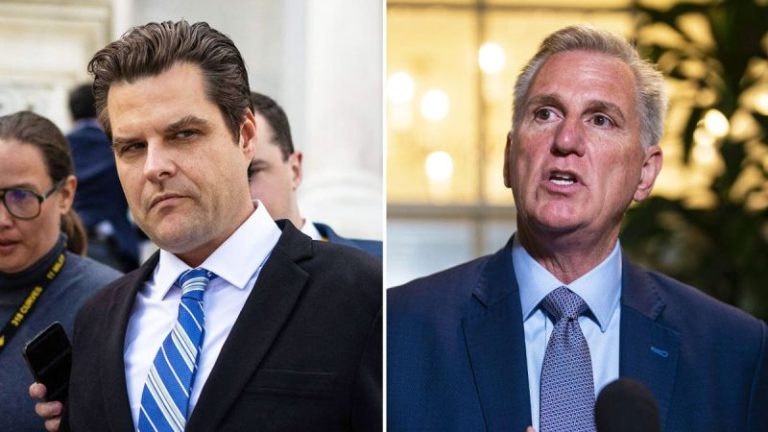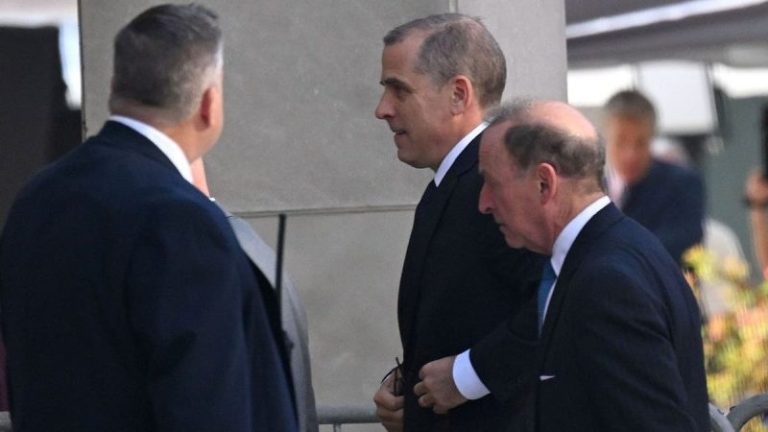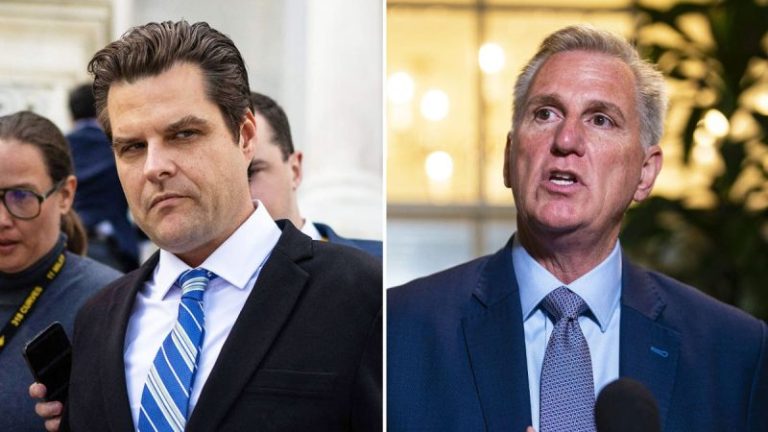A winnowing is likely coming in the race for the 2024 Republican presidential nomination, as thresholds to qualify for the next GOP presidential nomination debate are on the rise.
But even before a likely larger percentage of the Republican White House hopefuls fail to make the stage at the November showdown in Miami, Florida, the candidates struggling to survive face a more immediate threat as crucial fundraising reports from the campaigns are due in the coming days.
Lackluster campaign cash numbers from July-September third quarter fundraising reports may prove to be the death knell for some long-shot presidential contenders, slashing the size of a still relatively large field of GOP White House candidates.
‘The third quarter report is incredibly important for all the campaigns, but certainly those who are struggling to break out right now and garner attention, this will be the last financial indicator we see until very close to Iowa caucuses and New Hampshire primary for these campaigns,’ longtime New Hampshire based Republican consultant Jim Merrill told Fox News.
Merrill, a veteran of numerous GOP presidential campaigns, said that ‘whether it’s making the next debate stage or just evidence in grassroots momentum for the campaign, it’s going to be really important for these campaigns to show that they not only have strong numbers of cash on hand, but also grassroots support for a growing national audience.’
Alex Castellanos, a GOP strategist with decades of experience, also pointed to the fundraising reports and predicted that ‘a lot of these candidates are going to run out of gas as they try to drive to the next debate in Miami.’
So far, only one White House hopeful has called it quits.
Miami Mayor Francis Suarez suspended his campaign after failing to make the stage at the first Republican presidential nomination debate, a Fox News-hosted Aug. 23 showdown in Milwaukee, Wisconsin.
Former Arkansas Gov. Asa Hutchinson, the only one of the eight candidates on the stage at the first debate who failed to qualify for Wednesday’s second debate – a FOX Business co-hosted event held at the Ronald Reagan Presidential Library in Simi Valley, California – says if he fails to make the stage at the third GOP presidential nomination debate, he’ll consider dropping out.
‘If I don’t make that, we’ll re-evaluate where we are,’ Hutchinson told reporters this week as he referred to the third debate, which will be held Nov. 8 in Miami, Florida.
When asked for clarification if his response meant he would consider dropping out, Hutchinson answered, ‘Sure.’
Michigan businessman and quality control industry expert Perry Johnson, who failed to qualify for the first two debates, is now mulling a pivot to run for the open Senate seat in his home state.
‘Obviously, it’s no secret that I’ve had a lot of calls to run for this seat because they do want to win this seat. But at this point in time, my focus is right on the presidential [race], and, believe me, that’s taking all my time and energy at this point,’ Johnson told Fox News on Thursday.
Former Rep. Will Hurd of Texas, who previously served as an undercover agent in the CIA, also didn’t make the stage at the first two debates.
‘My team and I are constantly evaluating whether we have the resources to chart a path to victory,’ he wrote in a statement Wednesday. ‘I’m headed to New Hampshire to spread my message to the Granite State ahead of the First In the Nation primary. Educating voters on how to solve these existential issues is important, and hopefully other candidates will follow my lead.’
All eyes are also on GOP contender Larry Elder, a former nationally syndicated radio host and 2021 California gubernatorial recall election candidate, who failed to qualify for the first two debates.
Castellanos, a veteran of numerous Republican presidential campaigns, said some of the candidates will ‘soon have to take their ball and go home.’
Merrill noted, ‘It’s a really personal decision for every campaign. They each have a theory of the case. They may see a path forward and choose to pursue it.’
He also highlighted ‘that not only the media but donors and influencers are going to be watching these numbers closely.’
‘I do expect between now and Thanksgiving some hard conversations to be held among some of these candidates,’ Merrill predicted.
Gov. Chris Sununu of New Hampshire, who flirted with a 2024 run before deciding against it, has been saying for months that the field needs to shrink.
‘If you don’t make the first couple of debates, then you probably have to have a tough conversation and get out of the race,’ Sununu told Fox News over the summer.
Sununu, a vocal GOP critic of former President Donald Trump – who is the commanding frontrunner in the Republican nomination race – envisions a smaller field by the end of the year, just ahead of the Iowa caucuses and the New Hampshire primary, the first two contests in the Republican nominating calendar.
‘I think by the time you get to the end of December, you’ll have five or six different candidates going into Iowa, maybe three or four coming into New Hampshire,’ Sununu predicted. ‘If that’s the case, a huge opportunity for the Republican Party.’
Get the latest updates from the 2024 campaign trail, exclusive interviews and more at our Fox News Digital election hub.

